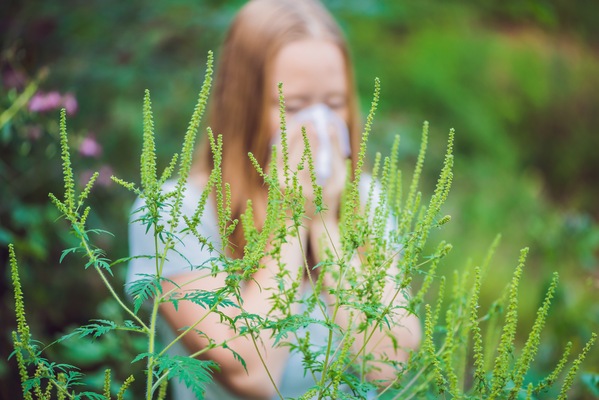
The autumn season is crisp, cool, and enjoyable in many parts of the country. However, the dreaded fall allergies can put a damper on your festivities. Knowing more about fall allergies can help you beat the symptoms so you can enjoy autumn to the fullest.
Here are four common causes of fall allergies and the steps you can take to alleviate the symptoms.
You probably know that pollen levels spike in the springtime, but did you know that the fall can be just as bad? Ragweed is a common plant that releases pollen particles into the air. These particles can travel hundreds of miles and make their way into your respiratory tract. You can thank ragweed pollen for autumn sneezes and sniffles.
When you turn on your heater as the weather cools down, you are likely stirring up dust particles. Dust is a common allergen that causes unpleasant symptoms like sneezing, itchy eyes, and a runny nose. Even if you keep a very clean home, dust can build up in your furnace and pipes and cause fall allergy symptoms.
Have your HVAC system serviced regularly and replace your air filters frequently to prevent dust buildup in your heating and cooling ducts.
Fall is typically not as humid as summertime, but mold and mildew can still grow. Have you ever stumbled onto a pile of wet leaves? Mold grows quickly in damp leaves, making it easy to track into your home.
Many older schools and offices also harbor small amounts of mold, especially if they are not cleaned thoroughly. If you are sensitive to mold and mildew, chances are the arrival of fall will bring some allergy symptoms with it. Professional mold inspections can identify harmful mold in your home or workplace.
Your pets produce dander year-round, but they are probably indoors more often in the fall. This can trigger allergy symptoms in those sensitive to pet dander. Dogs and cats are the most common culprits of pet allergies. You can reduce your symptoms by vacuuming frequently and bathing your pets often.
If you are tired of fall allergy symptoms bringing you down, allergy testing is the first step toward relief. When you get allergy tested, you can find out which allergens cause your reactions and seek the appropriate treatment.
Allergy treatment can include over-the-counter medication, allergy shots, or another allergy relief method. ENT doctors specialize in treating allergies and other upper respiratory conditions. Find relief from your fall allergies when you visit a high-quality ENT clinic.